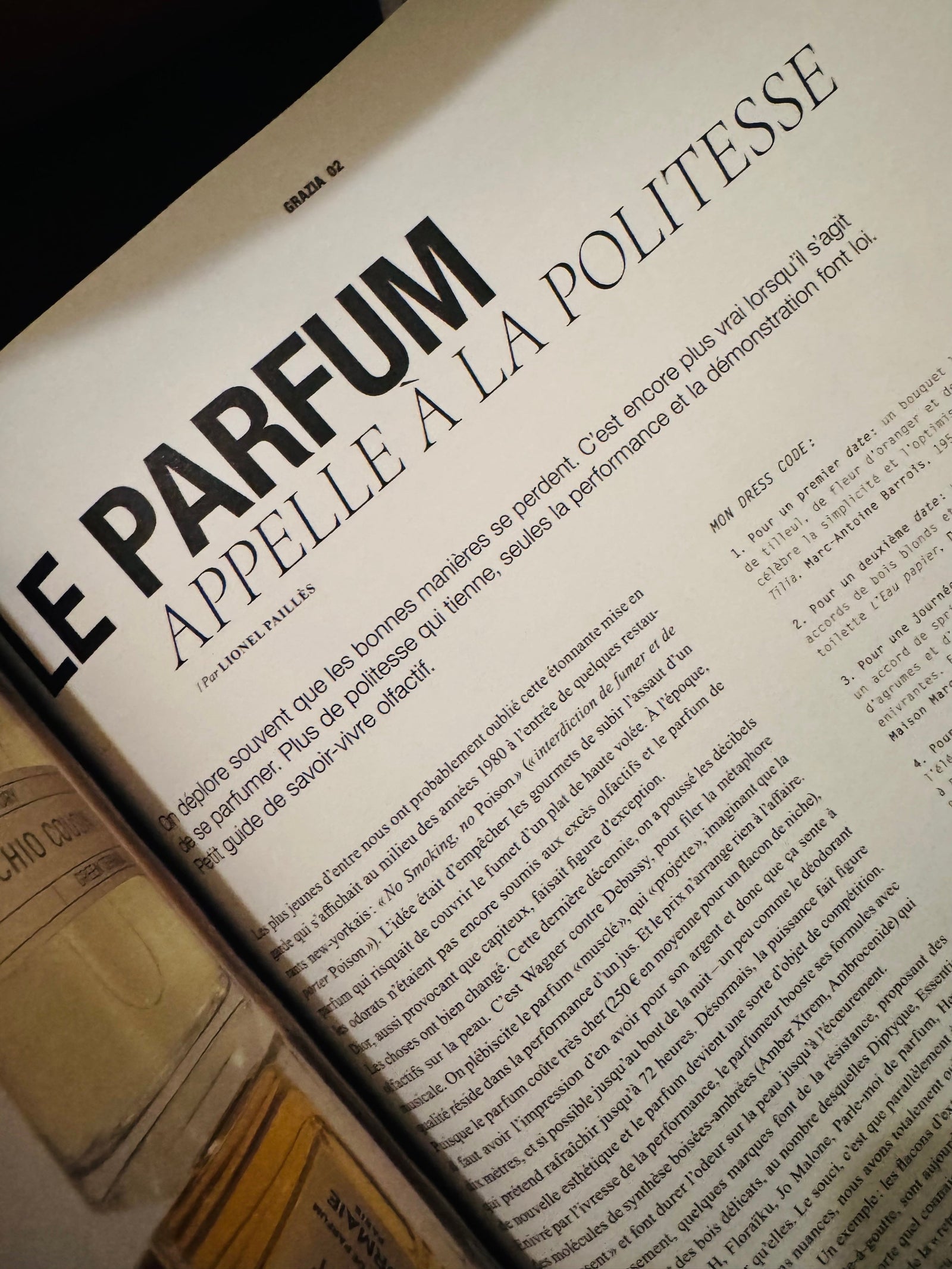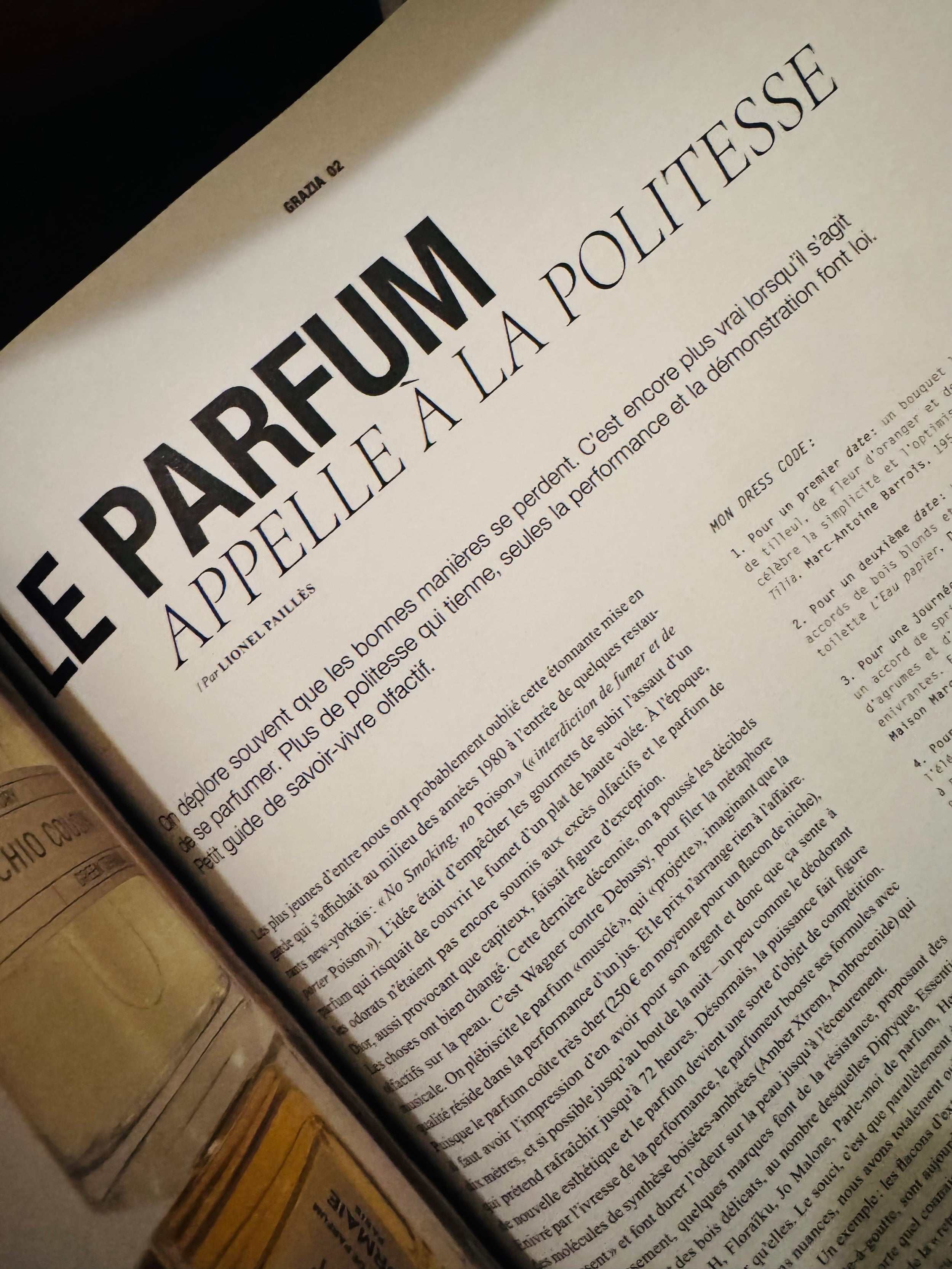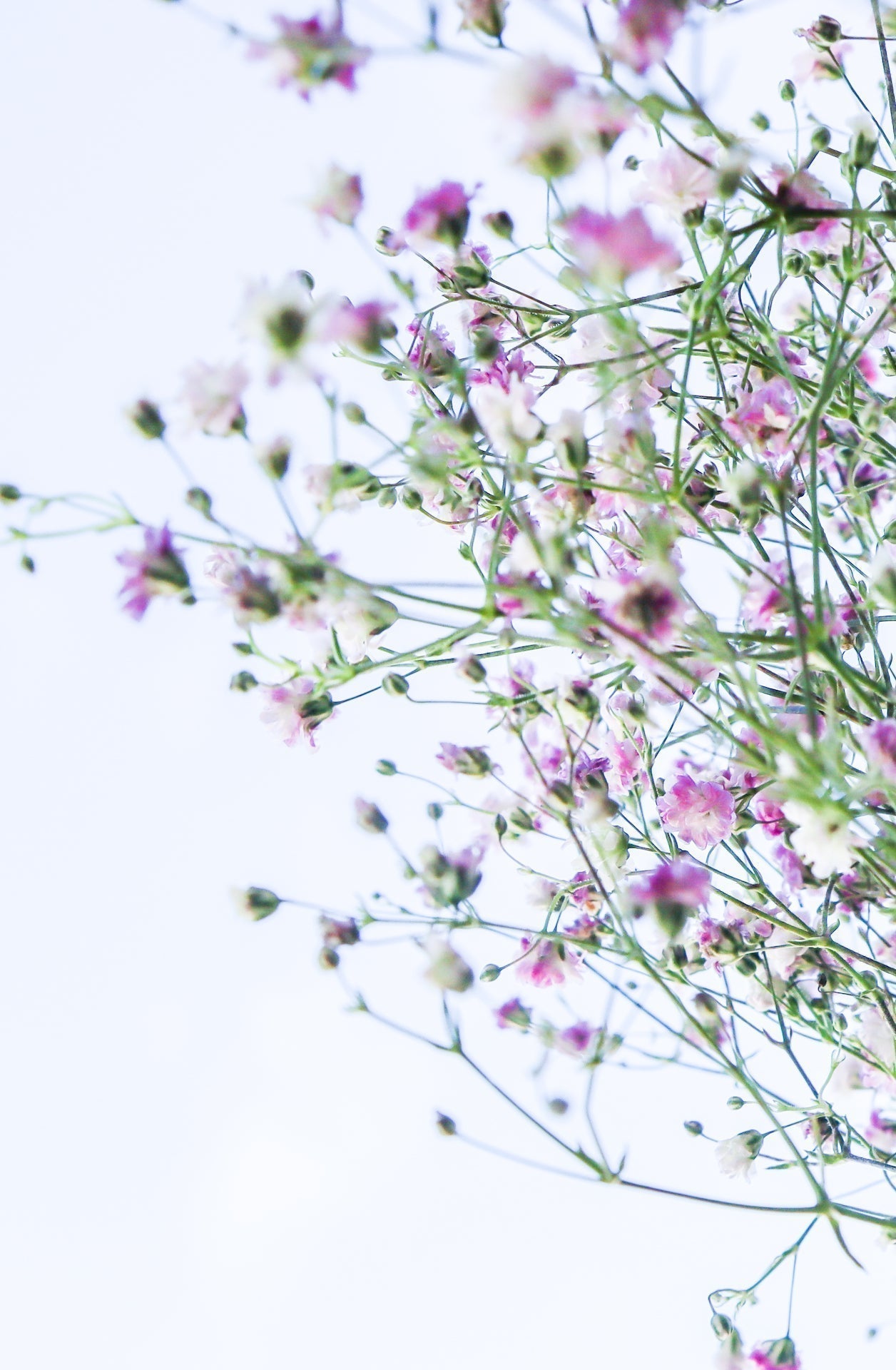
Once considered old-fashioned, politeness is becoming almost modern again: an act of resistance in an individualistic world. Our eyes glued to our phones, a world where we sometimes lose track of things, of those around us—and our senses, in the literal sense.
The word "politeness" was born in 16th century. It comes from Italian politezza - "cleanliness" - then "refinement, civilization". Itself derived from polito, "smooth, clean polish" from the Latin politus: "smooth, shiny" then "polished, educated". A whole genealogy which clearly shows that politeness is not just a matter of rules, but a subtle work on our ways of being in the world. (see definition of the French Academy).

Roland Barthes wrote: " Politeness is more generous than frankness, because it means that one believes in the intelligence of the other." James Ivory pointed out, in counterpoint: " Politeness of manners has never been a guarantee of a respectful attitude." Virtue or social mask, it remains a necessity. In the era of every man for himself, politeness becomes resistance : resistance to selfishness, indifference, contempt and the sometimes brutality of human relationships. The philosopher Alain defined politeness as "the art of signs", " a tribute to one's fellow human beings ".
We could almost call it a social ritual : a hello, a thank you, a door held. Tiny gestures, but they change the texture of our lives. " After you" should be the most beautiful definition of our civilization, wrote the philosopher Emmanuel Levinas . And as La Rochefoucauld pointed out, politeness is not just a convenience, it is " an attention that goes beyond simple self-respect to reach that of others."
Politeness isn't universal. What seems natural here may seem incongruous elsewhere. In Tibet, sticking out one's tongue is a traditional sign of respect. In Japan, special slippers are provided exclusively for the bathroom—forgetting to wear them is considered extremely rude. In Mongolia, when holding out an object, one supports one's arm with one's free hand to demonstrate the sincerity of the gesture. These are all codes that remind us that politeness is also a cultural language.
Being polite to oneself. Knowing how to listen to oneself, giving oneself permission to slow down, to breathe, to take care of oneself, and to do oneself good. Cultivating an inner gentleness that soothes and makes one more available to others. It is an intimate, discreet politeness toward oneself that is essential.
Olfactory politeness. In Japan, the smell of sweat in the subway is considered blatantly impolite. In India or the Middle East, while body odor is more tolerated, it must be removed in formal settings. Certain foods are prohibited in hotels and public places because of their overpowering odor: this is the case, for example, of durian, a fruit widespread in Southeast Asia adored for its flavors, feared because of its odor. In our comfortable societies, restrooms are a discreet but revealing arena of politeness: everyone is expected, at the very least, to erase all traces of their passage for those who follow.
Interviewed by Pauline Gallard (Gala, March 2014), Jacques Dutronc opened up about the subject of odors. " For me, perfume is a courtesy. I hate people who smell bad, who talk to you when they have bad breath. I try to respect people by wearing perfume, and I tend to spray myself before going out ."
Who has never felt attacked by a perfume?

In issue 2 of Grazia magazine , journalist Lionel Paillès highlights in an article titled "perfume calls for politeness " (photo) the quest for absolute intensity that has dominated perfumery for a decade : saturated, persistent, nuanceless trails to the point of nausea. To achieve this olfactory intensity and make the scent last on the skin, perfumers would boost - according to the journalist - formulas with woody-amber synthetic molecules (Amber Xtrem, Ambrocenide). Contrary to this trend, the journalist reminds us that " not trying to leave a trace, only a trail: that is the secret of true olfactory elegance . " Another form of politeness to cultivate.
Serge Lutens explained to Isabelle Cerboneschi in 2019 that he created his fresh skincare fragrances—reissued under the "Eaux de politesse" collection—with the idea that the wearer shouldn't impose themselves. " A fragrance that's like a tulle of illusion. These are fragrances for being polite, being present, but with less assertiveness, remaining at a slight distance from the subject and from things. It's a research into perfume ."
Domaine Singulier's scented rituals are part of this philosophy of polished fragrances: designed to enhance and purify spaces, neutralize unpleasant odors, soothe and welcome, without ever imposing their presence. Politeness toward others. Attention to oneself. And perhaps, on a daily basis, a little gentle resistance in a brutal world.
👉 discover the Domaine Singulier scented rituals ↗️
Read on the subject: Grazia issue 2 page 175* photos (published September 18, 2025), Philosophie Magazine "is politeness a virtue?" - Café Philo.org "Politeness, always a current value" -






